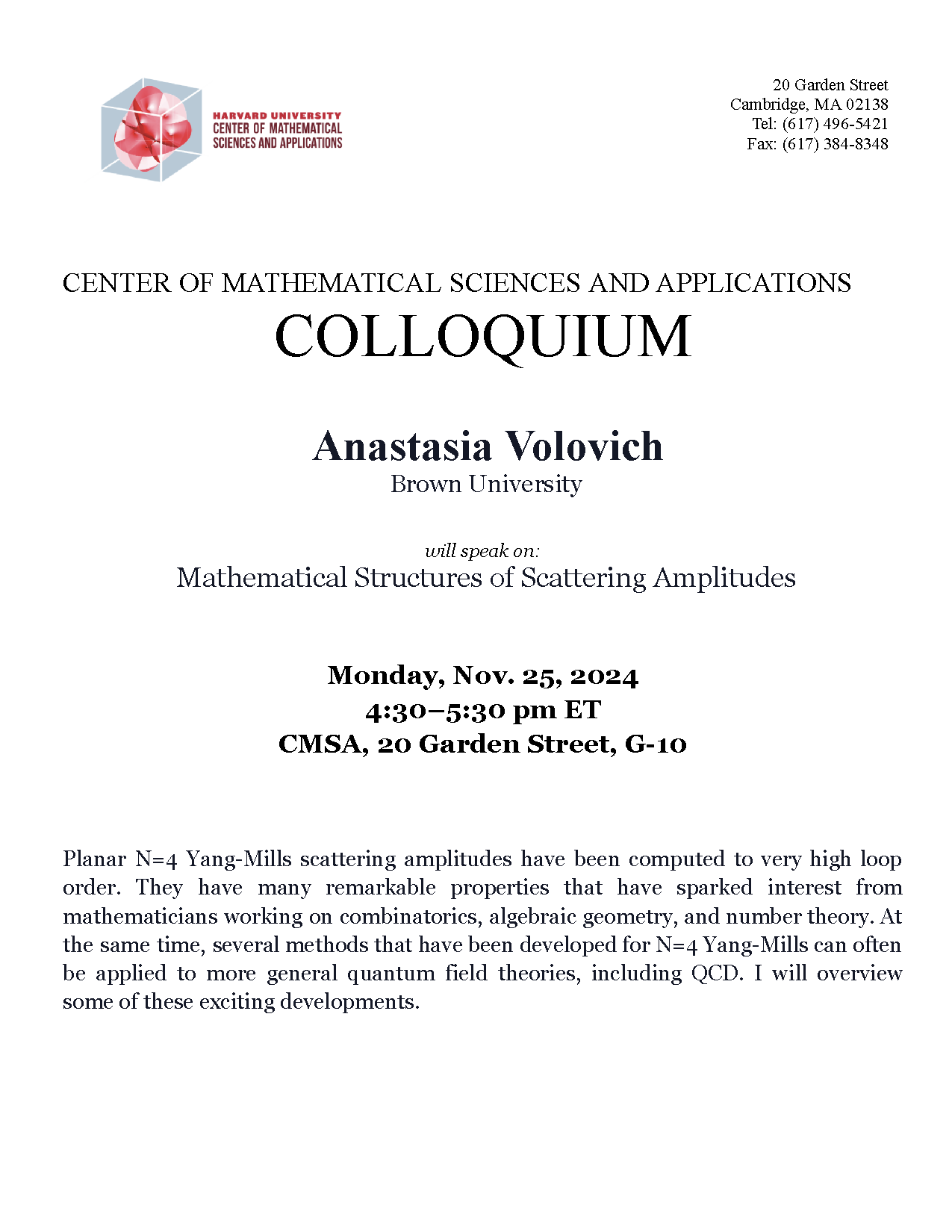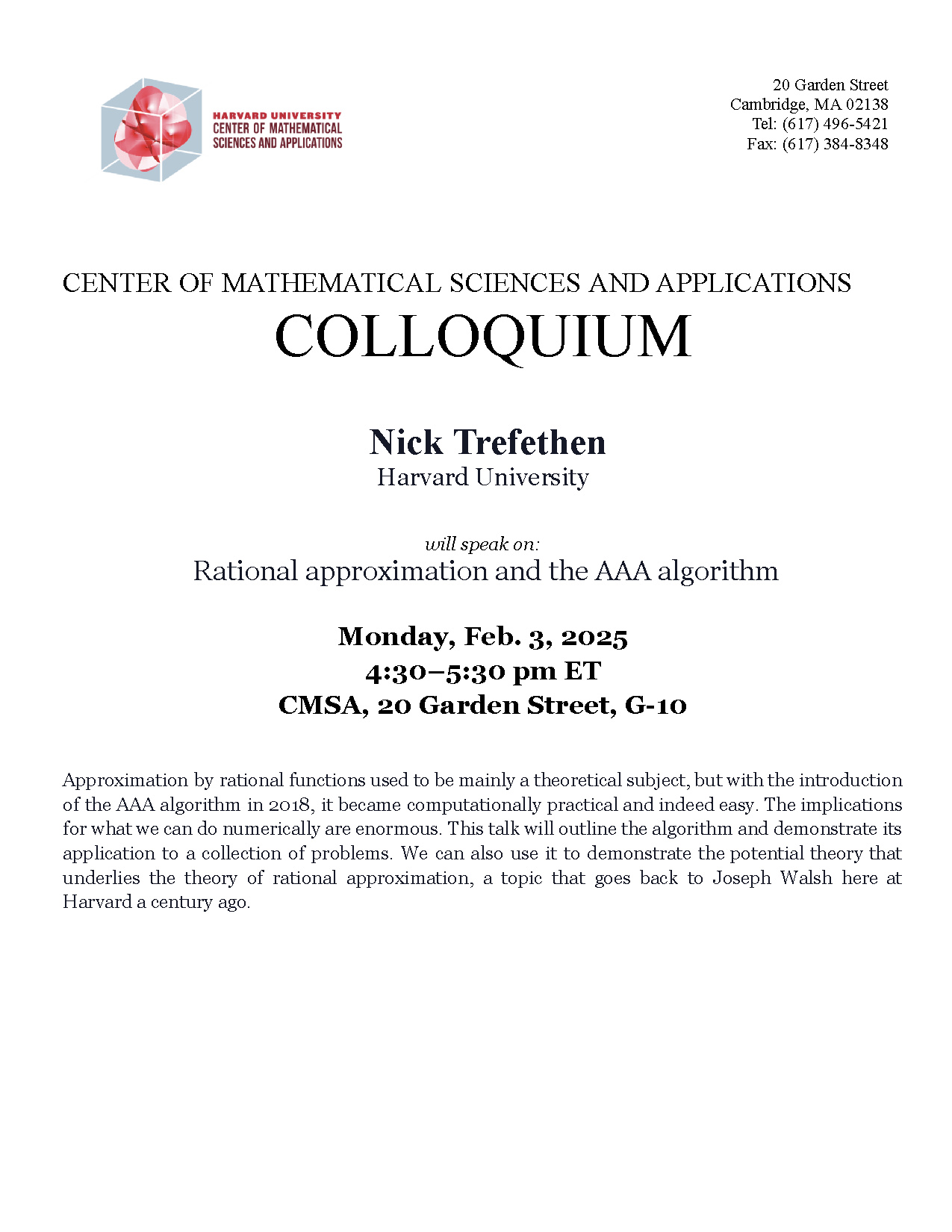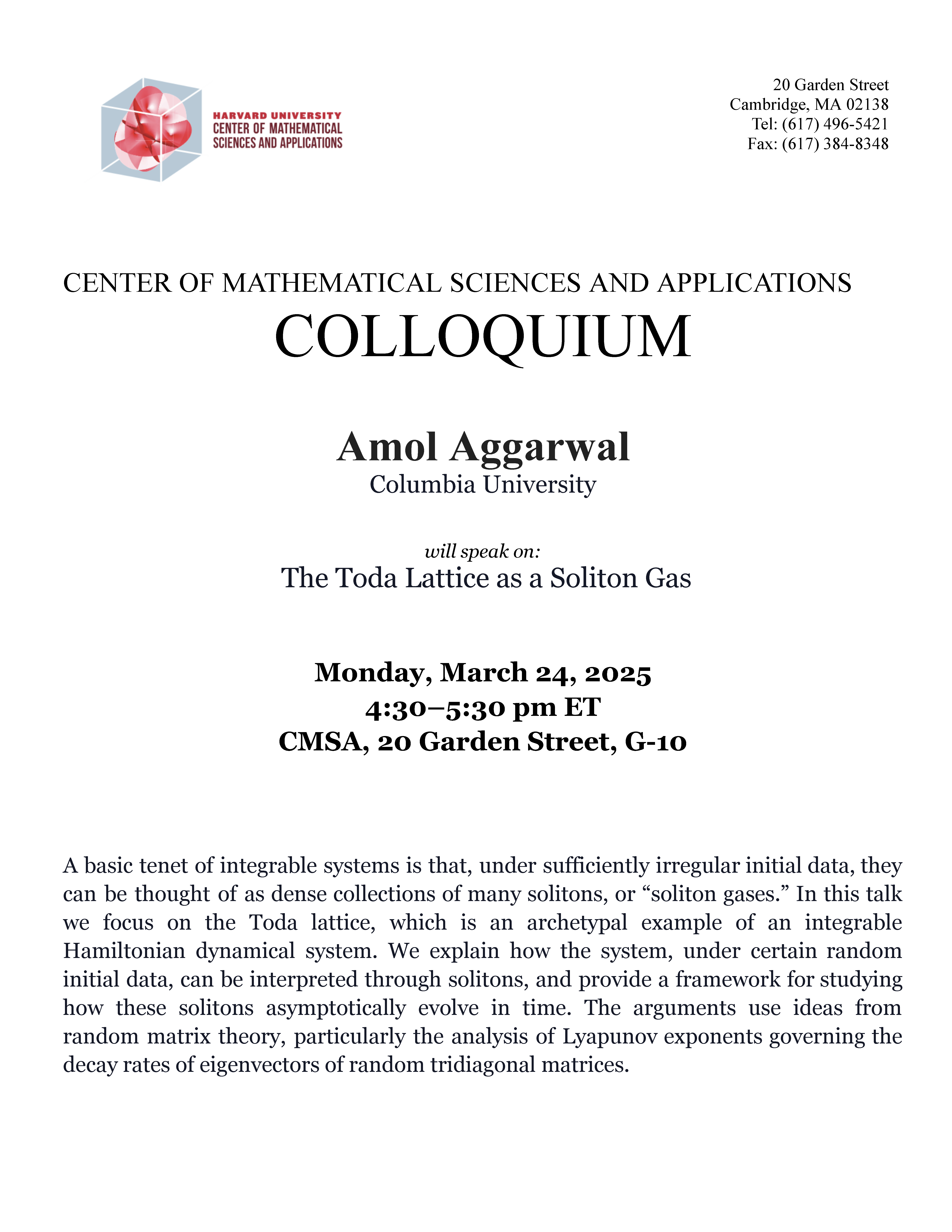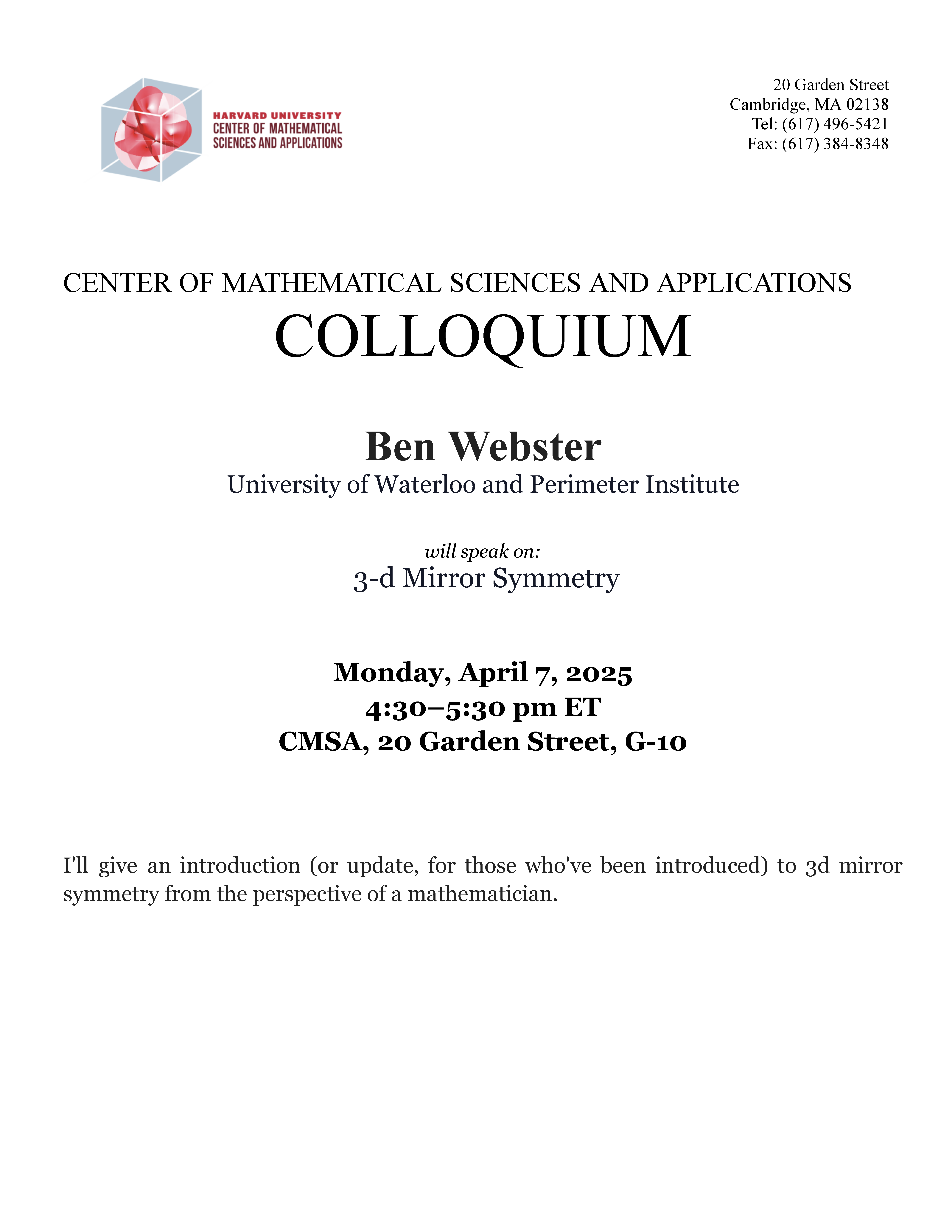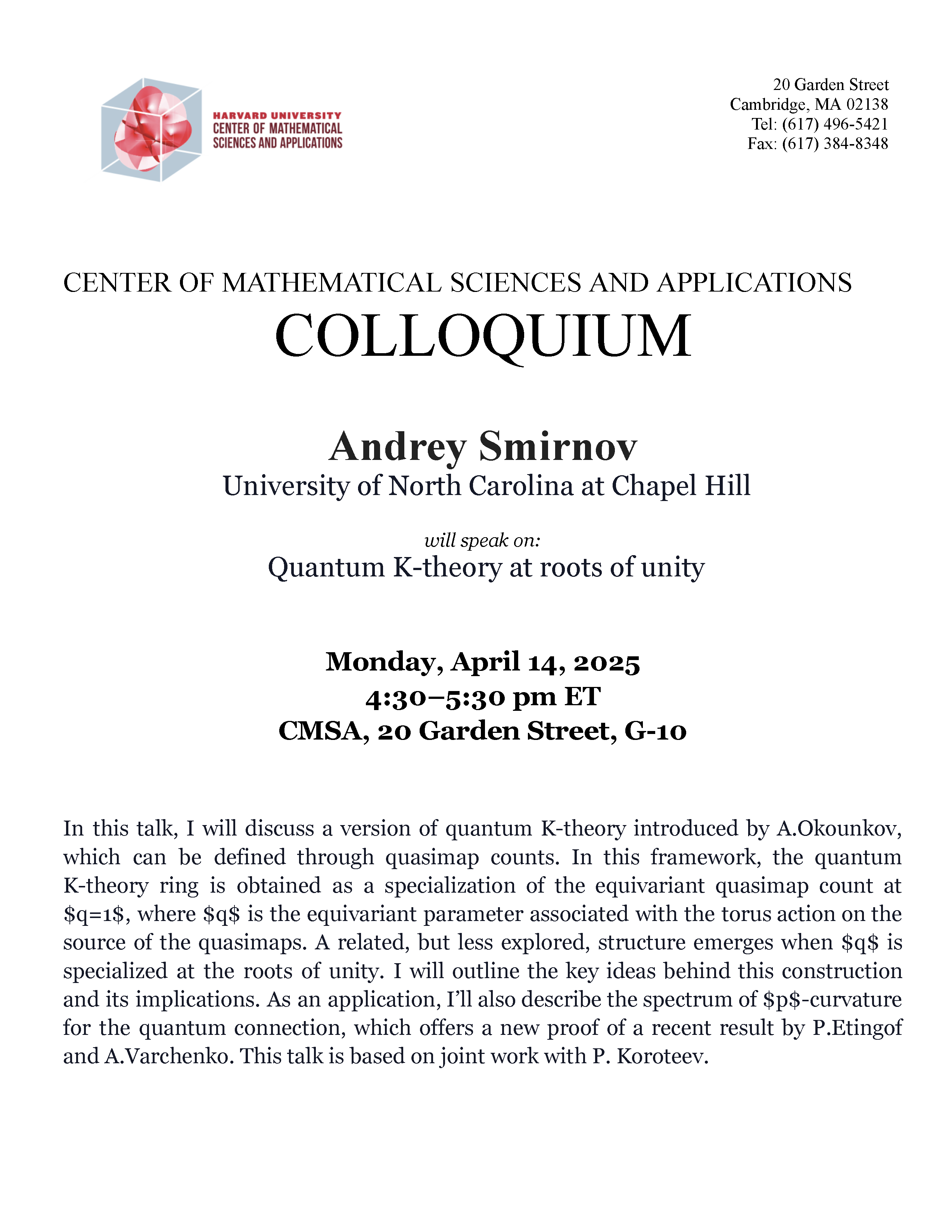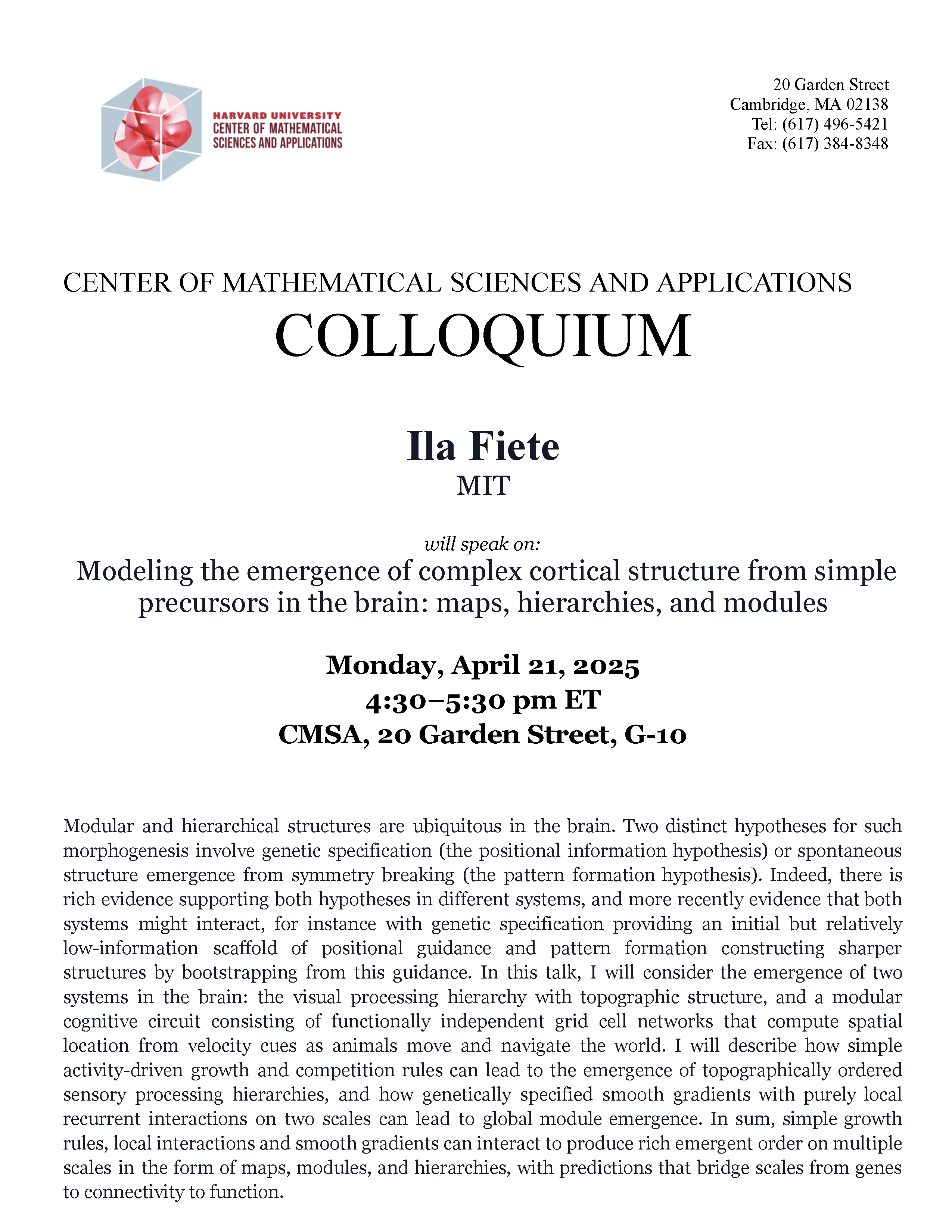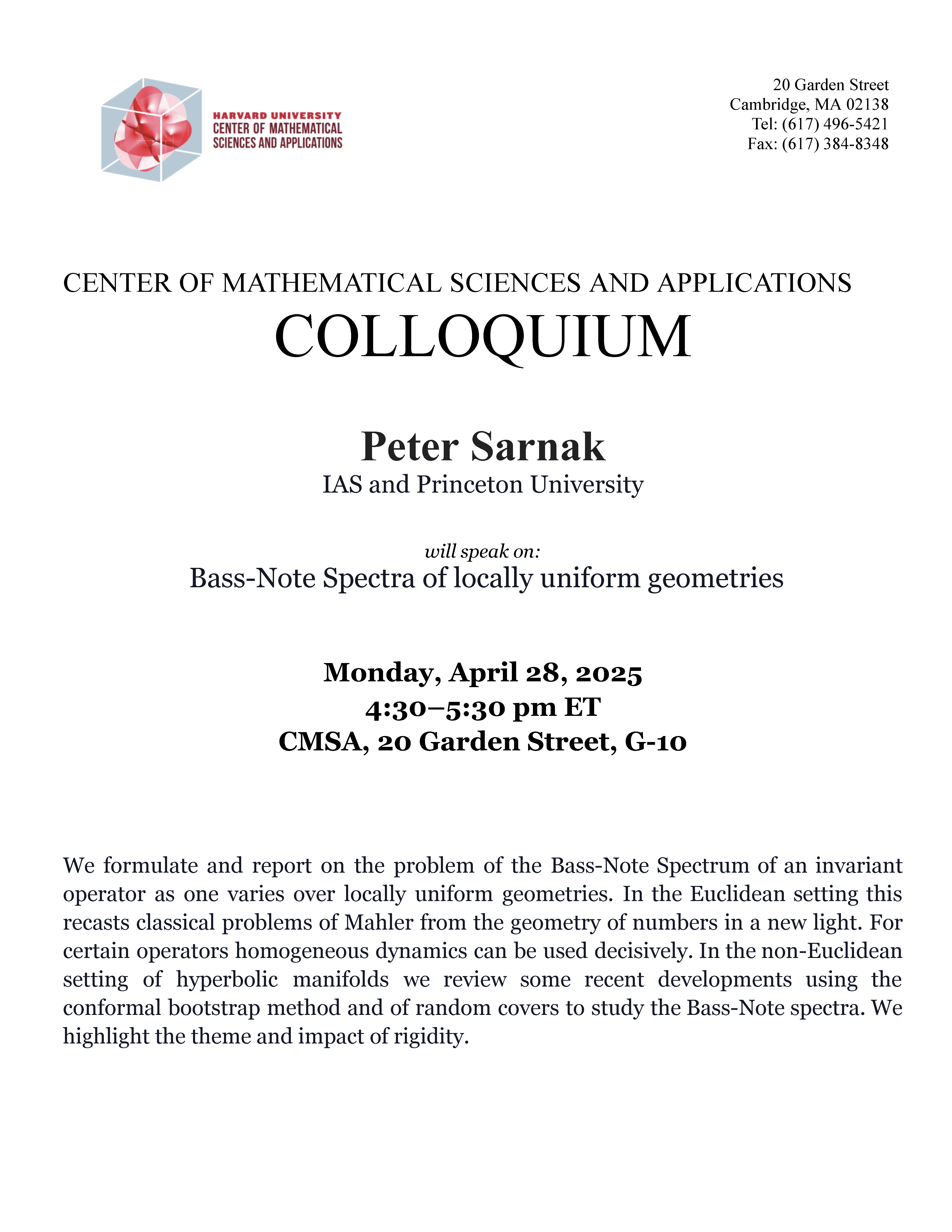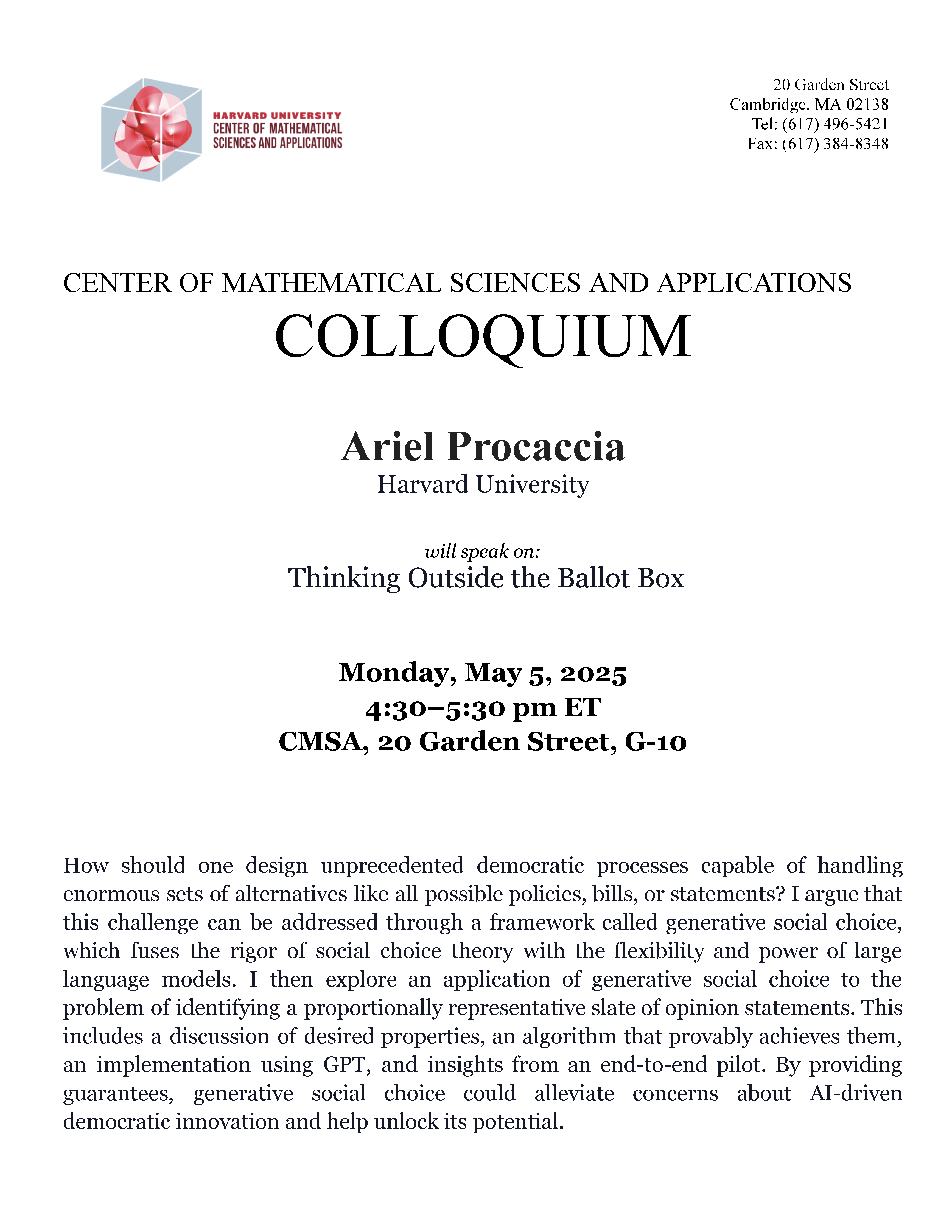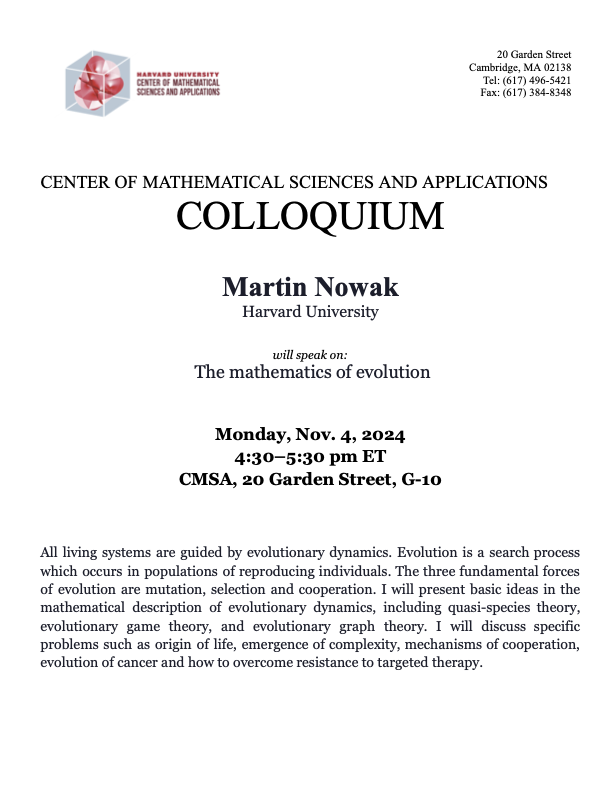
The mathematics of evolution
CMSA Room G10 CMSA, 20 Garden Street, Cambridge, MA, United StatesColloquium Speaker: Martin Nowak (Harvard) Title: The mathematics of evolution Abstract: All living systems are guided by evolutionary dynamics. Evolution is a search process which occurs in populations of reproducing individuals. The three fundamental forces of evolution are mutation, selection and cooperation. I will present basic ideas in the mathematical description of evolutionary dynamics, including quasi-species theory, evolutionary […]

